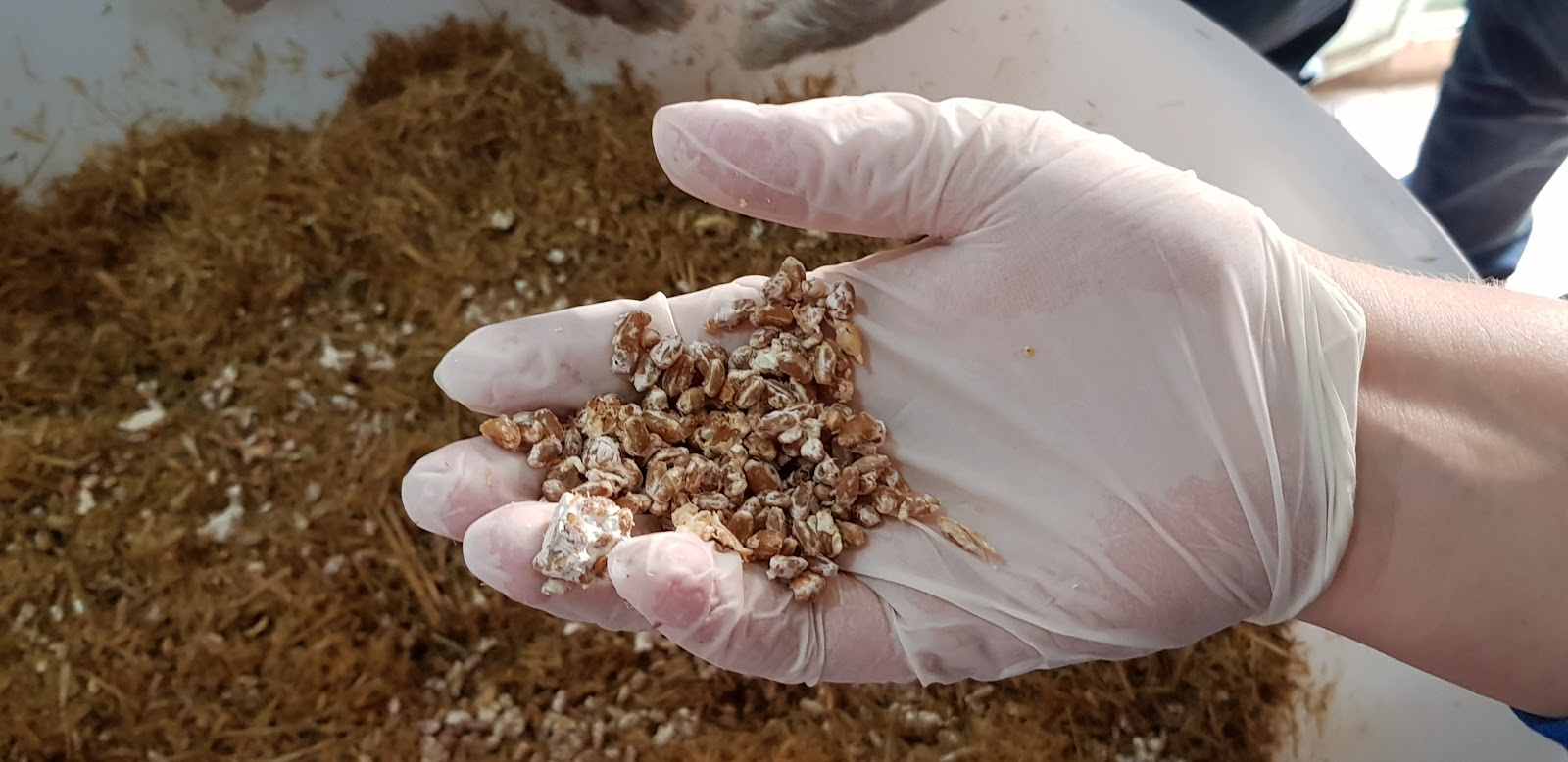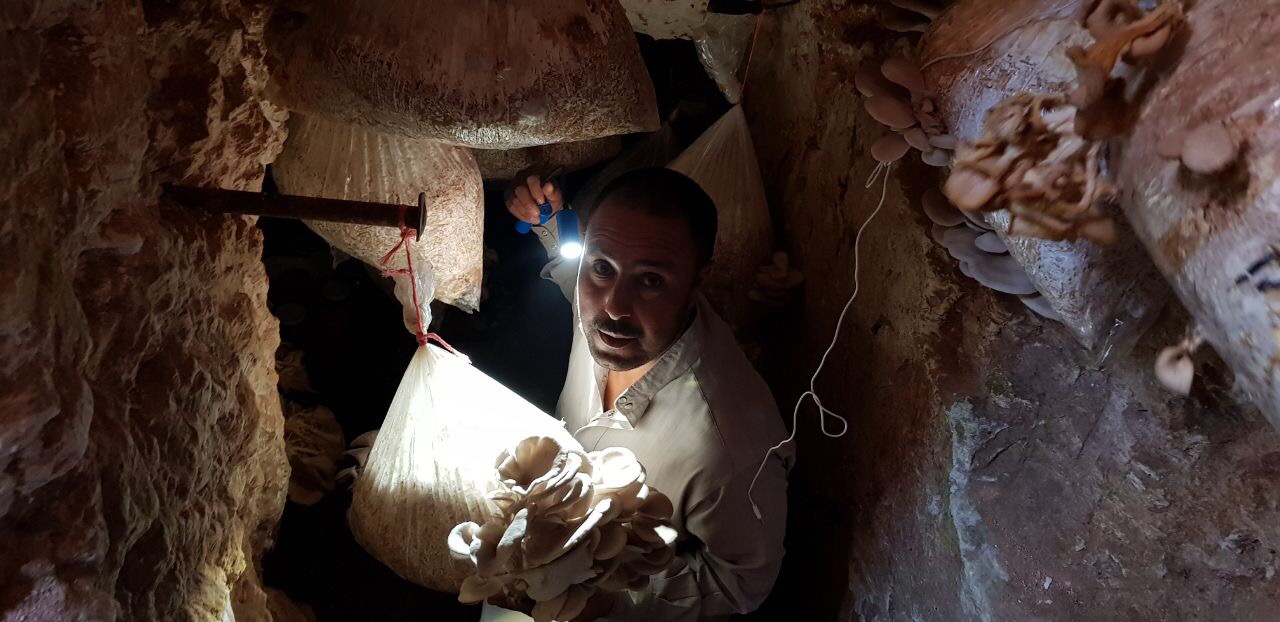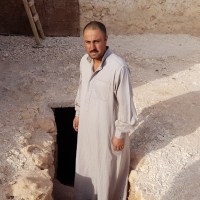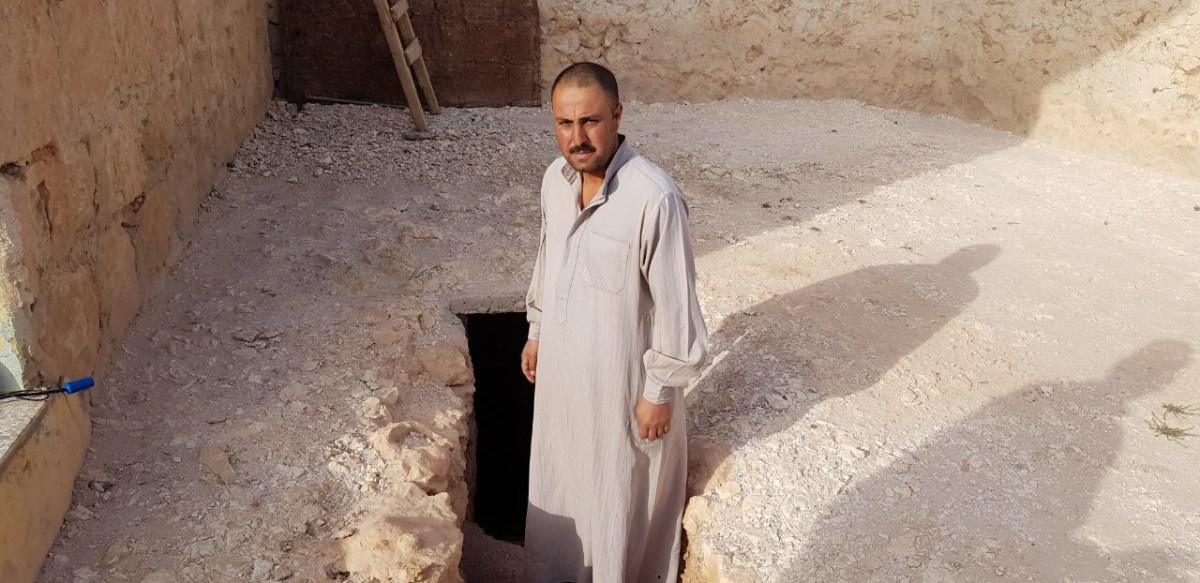Missiles. Rocket launchers. Barrel bombs. Tanks. Fighter jets and heat-seeking missiles.
When Syria’s government forces fought to retake control of Mohammed’s hometown, this is what was unleashed on it. In the aftermath—complete destruction. Homes, commercial districts, and the infrastructure we all take for granted, that allow us to live well, was crushed under all that firepower.
The underground shelter Mohammed and his family used to hide in during bombing now serves as his growing room for oyster mushrooms.
Mohammed’s family has an underground shelter for hiding from violence. It saved them before, and thanks to your investment in agriculture projects in Syria, it’s saving them again.

Mohamed is a new mushroom farmer, part of a growing co-op you helped to start in Syria. He has been trained in the best practices he needs to employ in order to be a success. And the underground shelter he and his family used to hide in during bombing campaigns now serves as his growing room for oyster mushrooms.
“This exact same tiny area that we used to hide in, it symbolized our shelter and secure area from mortars and snipers…” Mohammed told us during a visit to his home, “but now it symbolizes financial security and hope for a new tomorrow.”
Mushrooms were introduced to the Syrian diet relatively recently. Traditionally, lamb has been a staple source of protein, but the conditions of war make raising sheep in some areas difficult. Grazing sheep in open fields leaves the shepherd vulnerable to attack. And many fields were “planted” with explosives, making the land dangerous for all.
Mushrooms can be grown at home, minimizing the risk to the farmer, and providing a cheaper source of protein than lamb.
“Having a cheaper meat replacer and getting to keep our sheep is a great benefit for me,” Mohammed says.

Oyster mushrooms were first cultivated as a commercial crop in Germany during WWI. The same ingenuity that helped Germans during wartime a hundred years ago is helping Syrians today.
It happens that Mohammed’s underground “safe room,” with its stone walls and outside stair access, is a perfect place to grow mushrooms. The space is clean and dimly lit, able to retain moisture, but also ensures air flow.
“This is only the beginning.” Mohammed has long been a farmer, but he only knew farming in the traditional sense, with wide open fields growing lower-profit crops in bulk, like tomatoes and cucumbers. There were always the natural risks that come with unpredictable weather and massive competition with so many other farmers growing the same crops.
“I am planning to make mushrooms my business. I will not plant the cheap stuff anymore.”
Mohammed is eager for our next visit. He’s promised us coffee and the chance to see his success with his crop.
We are eager to help other Syrians like Mohammed get back to growing, develop successful agricultural businesses, and restore Syria’s place in the world as an important producer of food.
With initiatives like the Mushroom Project, we don’t have to wait for the war to end to make that happen. You give Syrians the ability to return to their land or stay on it, and to support their families with skills, traditions, and work ethic passed down for generations.


